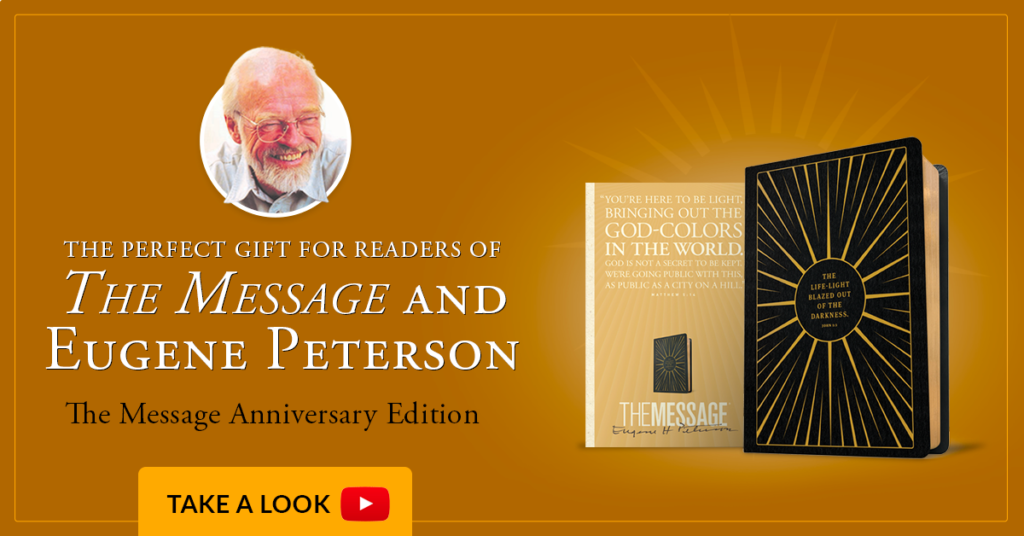December Reading from The Message
Matthew 1 starts with a long (dare I say boring?) list of names. 21st century readers want to skim that part to begin learning about Jesus. But the intentional detailing of Jesus’ family tree is significant. It outlines the prophetic timing of his arrival and the inclusivity of God’s family. Have you seen some of the people included on this list?
There were fourteen generations from Abraham to David, another fourteen from David to the Babylonian exile, and yet another fourteen from the Babylonian exile to Christ.
18-19 The birth of Jesus took place like this. His mother, Mary, was engaged to be married to Joseph. Before they enjoyed their wedding night, Joseph discovered she was pregnant. (It was by the Holy Spirit, but he didn’t know that.) Joseph, chagrined but noble, determined to take care of things quietly so Mary would not be disgraced.
20-23 While he was trying to figure a way out, he had a dream. God’s angel spoke in the dream: “Joseph, son of David, don’t hesitate to get married. Mary’s pregnancy is Spirit-conceived. God’s Holy Spirit has made her pregnant. She will bring a son to birth, and when she does, you, Joseph, will name him Jesus—‘God saves’—because he will save his people from their sins.” This would bring the prophet’s embryonic revelation to full term:
Watch for this—a virgin will get pregnant and bear a son; They will name him Immanuel (Hebrew for “God is with us”).
24-25 Then Joseph woke up. He did exactly what God’s angel commanded in the dream: He married Mary. But he did not consummate the marriage until she had the baby. He named the baby Jesus.
Scripture Insight
Anyone Can Get into the Family
One of the remarkable things about the genealogy in Matthew 1 is that there are women in it. In Jewish law, a woman had no legal rights; she was regarded not as a person but as a thing. In the regular form of morning prayer, a male Jew would give thanks that God had not made him a Gentile, a slave, or a woman.
That women’s names should even be in this list is extraordinary—and then when you see the names, you’re doubly surprised. The first is Rahab, who was a harlot of Jericho. The second is Ruth, who was not even a Jew but a hated Moabitess. The third was Tamar, who committed adultery with her father-in-law. The fourth was Bathsheba, the mother of Solomon, who participated in David’s great sin.
Each of these four names is of a person who was foreign or immoral or undesirable, yet in spite of this, was included in the messianic family tree. Redemptive history is inventive and incorporative. It doesn’t make any difference who your mother was. Anyone can get into the family.
Which is good news . . . for all of us.
Gifts for Message Readers and New Believers
During the Christmas season many who were previously closed off are open to the word of God. We have Bibles that spark their interest and help them grow in their newfound faith. Take a look at Gift Bibles for girls, boys, and adults. Including large print!

Meanwhile, some Christians feel Scripture fatigue at this time of year. The Message is uniquely positioned to breathe life into these believers so they can fall in love with God’s word once again. Take a look at The Message Anniversary Edition and other full size, bestselling Bibles.


